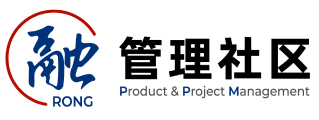面试精讲|携程产品面经(二面)
 528 2024-08-30
528 2024-08-30
我们非常重视原创文章,为尊重知识产权并避免潜在的版权问题,我们在此提供文章的摘要供您初步了解。如果您想要查阅更为详尽的内容,访问作者的公众号页面获取完整文章。
Article Summary
Which internship experience contributed most to your growth?
Interviewers ask about the most impactful internship to understand the challenges you faced, the actions you took to overcome them, and how these experiences shaped your skills and work ethic. An effective strategy is to directly name the most influential experience using the pyramid principle, detailing the project, challenges, actions, and learning outcomes. Avoid vague answers and focus on specific actions and learning outcomes.
How would you rate your ability to write a PRD?
The question on self-rating PRD writing skills is to assess your self-awareness and document writing skills. Using the PREP principle, provide a clear rating, explain the reasoning, give examples of your practices, and reiterate the rating with possible improvements. Avoid overly high or low self-ratings without sufficient support or examples.
What is the most challenging part of writing a PRD?
When asked about the most difficult part of writing a PRD, use the PREP principle to identify the most challenging section, explain why, provide examples of overcoming these challenges, and summarize your main point. Share personal experiences and innovative solutions that demonstrate your ability to solve problems.
Can you explain the business process of the XX project?
Describing the business process of a specific service, such as the audit or after-sales process, requires an understanding of the logical flow and purpose of each step. Use the PREP principle to outline the main goal, key stages, examples of operations, and the importance or your views on optimizing the process. Adjust details based on the type of business you're discussing and share experiences in optimizing processes. Avoid generic descriptions and missing steps.
What are the evaluation criteria for the XX project you worked on?
When asked about project evaluation criteria, use the pyramid principle to define primary goals and success measures, explain specific benchmarks, provide examples, and emphasize how these criteria help achieve project objectives. Customize based on your project and share strategies for meeting or exceeding standards. Avoid vague or overly general criteria.
If the XX feature is not introduced, are there other ways to solve the business problem?
Answering whether there are alternatives to a specific feature tests your innovative thinking and problem-solving skills. Use the PREP principle to confirm alternative methods, reason with understanding of user needs and business goals, provide examples of solutions, and conclude their effectiveness without the XX feature. Share experiences of successfully implementing alternative solutions and avoid generic or dismissive answers.
If the development team says a requirement cannot be implemented, what should be done?
Addressing unfeasible requirements tests your problem-solving strategy, communication, and ability to align business needs with technical possibilities. Use the PREP principle to focus on understanding the issue, reasoning, providing steps or examples of adjustments, and emphasizing effective resolution to advance the project. Share experiences of collaborative solutions and stress your adaptability and innovation.
Why do you want to be a product manager?
The question probes your passion and motivation for the role of a product manager. Use the pyramid principle to express your interest, reasons such as impact creation, user problem-solving enthusiasm, and interest in technology and market trends. Provide examples from past experiences that prepare you for the role and conclude with your vision and expectations. Avoid generic or uninspired answers and lack of specific examples.
想要了解更多内容?


白皮书上线








